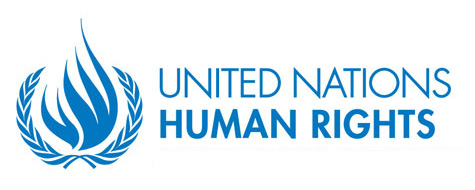Human rights are inherent to all human beings. They are defined and established in more than 80 international legal instruments1 and include fundamental protections of human dignity, needs, and freedoms, such as food, housing, privacy, personal security, and democratic participation. Since the adoption of the Universal Declaration of Human Rights (UDHR) in 1948, the responsibility to protect human rights has primarily fallen on governments. Beginning in the early 2000s, however, it became increasingly clear that the freedoms enshrined in the human rights framework could also be violated—and promoted—by the private sector.
In 2011, the UN Human Rights Council unanimously endorsed the UN Guiding Principles on Business and Human Rights (Guiding Principles), the first international instrument to assign companies the responsibility to respect human rights. The Guiding Principles state that governments must put in place good policies, laws, and enforcement measures to prevent companies from violating rights; companies must refrain from negatively impacting rights even when governments are failing to create or enforce necessary laws; and victims of corporate abuses must have access to effective remedy. As part of this responsibility, the Guiding Principles require companies to undertake due diligence to identify and manage their negative human rights impacts.
This issue brief identifies the 10 most relevant, urgent, and probable human rights impacts for businesses operating in the power and utilities sector. The information here is gathered from BSR’s direct engagement with power and utilities companies, as well as our 25 years of experience helping companies in all sectors manage their human rights risks.
The power and utilities sector comprises a wide range of businesses and activities, from electricity and heat, gas, waste, and water utilities to different actors in the energy markets, like power producers and energy developers. While each of these sub-sectors will have its own human rights profile and challenges, this brief highlights universal risks to the sector as a whole.
Top Human Rights Risks
1: Emergency Response and Community Safety
From natural disasters to hazardous waste spills, power and utilities companies have the potential to profoundly affect communities near their operations. The private sector is not only responsible for preventing and mitigating accidents and emergencies related to its operations, but for also participating in remedy mechanisms should they occur to ensure that their negative impacts are rectified.
Rights at Risk
2: Bribery and Corruption
All power and utility companies—and especially those operating in countries with poor rule of law—are exposed to corruption risks. Corruption and bribery profoundly impact vulnerable communities, either by misdirecting funds that could be spent on healthcare, education, or other public goods or by preventing participation in the democratic process.
Rights at Risk
- Right to equality before the law and to take part in government (UDHR Articles 7, 21)
3: Health and Safety
Acute health and safety risks are common in the power and utilities sector, including hazards such as electrocution for grid operators, exposure to toxic substances for waste pickers, and inadequate protective equipment for indirectly hired employees. Long hours and shift work are also common, amplifying the possibility of human error. Contracted workforces are most vulnerable to such risks and for companies of the sector, contractor and supplier due diligence is an essential component of labor and human rights risks management.
Rights at Risk
4: Employee Discrimination
This sector has historically been a male-dominated industry, sometimes resulting in unfair hiring practices, pay disparities, workplace harassment, and favorable treatment for majority groups in promotion and professional development. For companies operating in global markets, respecting employees’ rights means securing equal opportunities for every member of their diverse workforce..
Rights at Risk
5: Collective Bargaining
Outsourcing practices and greater independence of contractors may lead to a decline in collective bargaining and the effectiveness of workers’ councils or representatives. This could reduce worker protection and exacerbate discrimination for vulnerable workers, as they often lack negotiating and bargaining power
Rights at Risk
- Right to peaceful assembly and freedom of association (UDHR Article 20, 23; ICESCR Article 8; ICCPR Articles 21, 22; ILO C87)
- Right to collective bargaining terms and conditions of employment and to take industrial action (ICESCR Article 8; ICCPR Article 22; ILO C98)
- Right to equality and non-discrimination (UDHR Article 1, 2; ICESCR Article 2; ICCPR Articles 2, 26; ILO C100, C111)
- Right to adequate living standard for self and family (UDHR Article 25; ICESCR Article 9)
6: Land Acquisition and Resettlement
Power and utilities infrastructure projects may require land acquisition. This carries the risk that local communities may not be adequately consulted or compensated, especially in autocratic countries or where resettlement is forced. Indigenous communities are particularly vulnerable to these impacts, and companies are expected to adhere to the principle of “free, prior, and informed consent” when carrying out projects on indigenous lands.
Rights at Risk
7: Local Community Livelihoods
Developing countries often invite companies to invest in large infrastructure projects (e.g. through power plants and hydro dams, power grids, gas pipelines, and wind farms) to enhance energy security and provide for rising energy demand. The communities living near these projects, however, are sometimes overlooked, and they may be at risk of losing their livelihoods due to migration, disruption, or industrial pollution. These impacts may be felt far beyond the project boundaries and may not be immediately evident, as in the case of loss of cultural heritage or natural resources.
Rights at Risk
8: Security Forces
If not properly managed, large-scale projects may lead to protests over the use of land and increase the risk of violence. While security forces are often necessary to protect staff and assets in conflict-affected or weak-governance countries, use of such forces without adequate training, or with weapons in excess of their mandate, can give rise to serious violations.
Rights at Risk
9: Vulnerable Consumers
Utilities provide essential services for life and development. This does not mean that companies have to give away their products for free, but they should be cognizant of the broader impacts of their pricing and access policies. A regulated price structure should guarantee fair access to water, electricity, gas, and heat. When rising costs make these commodities unaffordable for lower income communities, this could create discriminatory access or black markets—it could also drive individuals to electricity theft with dangerous safety consequences.
Rights at Risk
10: Grievance Mechanism and Right to Remedy
Infrastructure development projects can put communities at risk—loss of housing, property, livelihoods, cultural practices, and security. Effective grievance mechanisms are essential to prevent adverse consequences and offer remedy when negative impacts cannot be avoided.
Rights at Risk
Top 3 Opportunities for Positive Impact
1: Providing Access to Energy, Water, and Sanitation
Power and utilities companies can provide great contributions to achieving the United Nations Sustainable Development Goals related to basic services. This may take the form of individual company initiatives, or may entail collaborative efforts through public-private partnerships, community investment, or stakeholder engagement.2 Access to sustainable energy, water, and sanitation can transform lives; this is key to achieving rights related to health, food security, livelihoods, and education around the world.
- Right to adequate living standard for self and family (UDHR Article 25; ICESCR Article 9)
- Right to health (ECESCR Article 12)
- Right to water (ICESCR Articles 11, 12)
- Right to food (ICESCR Article 11)
2: Promoting Economic and Social Development
Infrastructure development and its continuous maintenance can broaden access and improve connections to essential services. It can also, in the longer term, drive local economic and social development through good job creation and access to technical education, technical knowledge transfer, and enhanced local skills.
- Right to education (UDHR Article 26)
- Right to adequate living standard for self and family (UDHR Article 25; ICESCR Article 9)
3: Empowering Women
Female economic inclusion is a proven pathway to poverty alleviation and social development, and it has significant multiplier effects. Training women on ways to save energy and water, for instance, can significantly benefit their entire families and larger communities. Projects that have trained women to be “solar entrepreneurs” have resulted in the installation and maintenance of renewable energy in entire villages.3
- Right to adequate standard of living for self and family (UDHR Article 25; ICESCR Article 9)
- Right to equality and non-discrimination (UDHR Articles 1, 2; ICESCR Article 2; ICCPR Articles 2, 26)
- Right to equality between men and women (ICESCR Article 3; ICCPR Article 3)
Top 3 Emerging Human Rights Issues
1: Human Rights and Climate Change
The power and utilities sector, specifically the production of heat and electricity, contributes more to greenhouse gas emissions than any other industry.4 Climate change already disproportionally affects vulnerable communities on a broad range of human rights, including health, water, food, sanitation, and other basic human needs, and these impacts are likely to increase.
2: Privacy and Data Security
Smart metering systems are increasingly used by utilities to efficiently manage their service loads and to support continuing sector innovation. Analyzing consumption patterns requires data storage that may risk a breach—and the dissemination of private consumer data—with untold consequences.
3: Confict-Affected Areas
Coal, uranium, gas, and biomass for power production may be sourced from conflict-affected or high-risk areas. Risks linked to natural resource extraction in such contexts include child labor, forced labor, exploitative working conditions, security risks, and abuse of local communities.
Get the Primer
DownloadLet’s talk about how BSR can help you to transform your business and achieve your sustainability goals.




